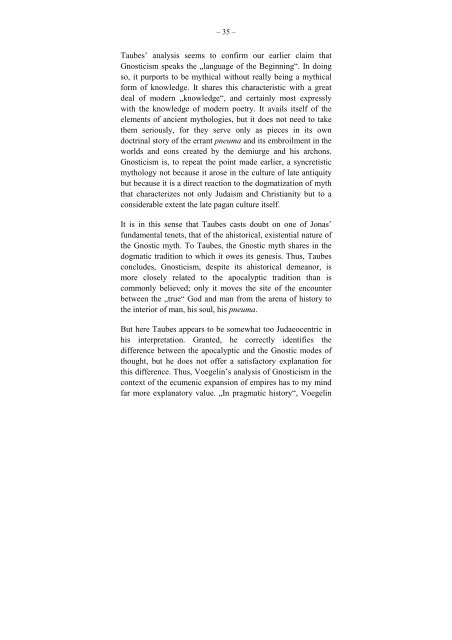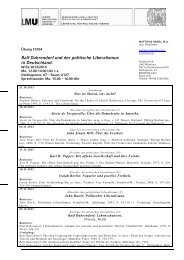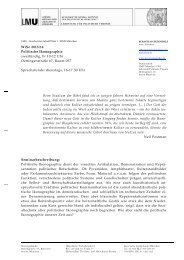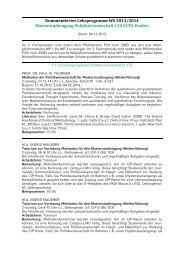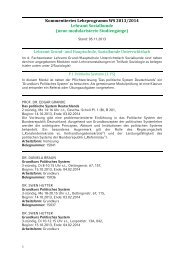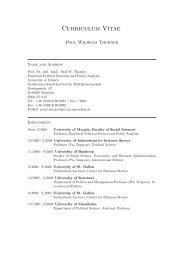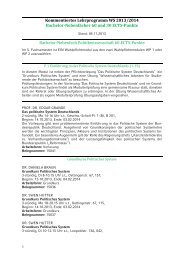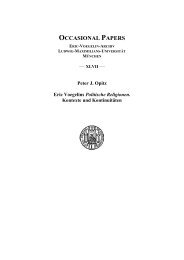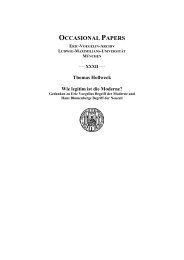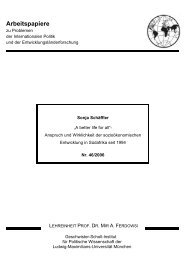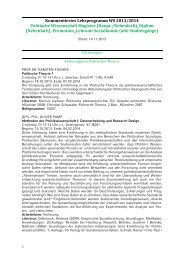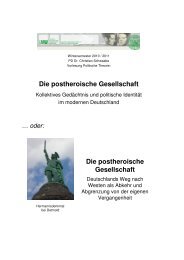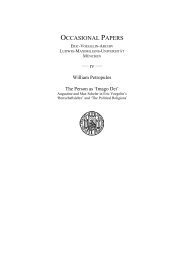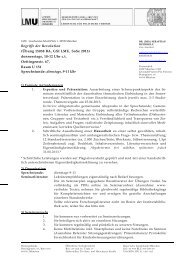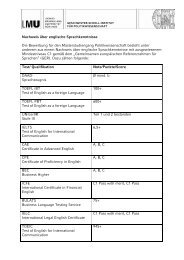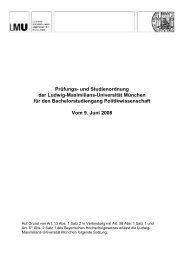THOMAS HOLLWECK is Associate Professor of German at
THOMAS HOLLWECK is Associate Professor of German at
THOMAS HOLLWECK is Associate Professor of German at
Create successful ePaper yourself
Turn your PDF publications into a flip-book with our unique Google optimized e-Paper software.
– 35 –<br />
Taubes’ analys<strong>is</strong> seems to confirm our earlier claim th<strong>at</strong><br />
Gnostic<strong>is</strong>m speaks the „language <strong>of</strong> the Beginning“. In doing<br />
so, it purports to be mythical without really being a mythical<br />
form <strong>of</strong> knowledge. It shares th<strong>is</strong> character<strong>is</strong>tic with a gre<strong>at</strong><br />
deal <strong>of</strong> modern „knowledge“, and certainly most expressly<br />
with the knowledge <strong>of</strong> modern poetry. It avails itself <strong>of</strong> the<br />
elements <strong>of</strong> ancient mythologies, but it does not need to take<br />
them seriously, for they serve only as pieces in its own<br />
doctrinal story <strong>of</strong> the errant pneuma and its embroilment in the<br />
worlds and eons cre<strong>at</strong>ed by the demiurge and h<strong>is</strong> archons.<br />
Gnostic<strong>is</strong>m <strong>is</strong>, to repe<strong>at</strong> the point made earlier, a syncret<strong>is</strong>tic<br />
mythology not because it arose in the culture <strong>of</strong> l<strong>at</strong>e antiquity<br />
but because it <strong>is</strong> a direct reaction to the dogm<strong>at</strong>iz<strong>at</strong>ion <strong>of</strong> myth<br />
th<strong>at</strong> characterizes not only Juda<strong>is</strong>m and Chr<strong>is</strong>tianity but to a<br />
considerable extent the l<strong>at</strong>e pagan culture itself.<br />
It <strong>is</strong> in th<strong>is</strong> sense th<strong>at</strong> Taubes casts doubt on one <strong>of</strong> Jonas’<br />
fundamental tenets, th<strong>at</strong> <strong>of</strong> the ah<strong>is</strong>torical, ex<strong>is</strong>tential n<strong>at</strong>ure <strong>of</strong><br />
the Gnostic myth. To Taubes, the Gnostic myth shares in the<br />
dogm<strong>at</strong>ic tradition to which it owes its genes<strong>is</strong>. Thus, Taubes<br />
concludes, Gnostic<strong>is</strong>m, despite its ah<strong>is</strong>torical demeanor, <strong>is</strong><br />
more closely rel<strong>at</strong>ed to the apocalyptic tradition than <strong>is</strong><br />
commonly believed; only it moves the site <strong>of</strong> the encounter<br />
between the „true“ God and man from the arena <strong>of</strong> h<strong>is</strong>tory to<br />
the interior <strong>of</strong> man, h<strong>is</strong> soul, h<strong>is</strong> pneuma.<br />
But here Taubes appears to be somewh<strong>at</strong> too Judaeocentric in<br />
h<strong>is</strong> interpret<strong>at</strong>ion. Granted, he correctly identifies the<br />
difference between the apocalyptic and the Gnostic modes <strong>of</strong><br />
thought, but he does not <strong>of</strong>fer a s<strong>at</strong><strong>is</strong>factory explan<strong>at</strong>ion for<br />
th<strong>is</strong> difference. Thus, Voegelin’s analys<strong>is</strong> <strong>of</strong> Gnostic<strong>is</strong>m in the<br />
context <strong>of</strong> the ecumenic expansion <strong>of</strong> empires has to my mind<br />
far more explan<strong>at</strong>ory value. „In pragm<strong>at</strong>ic h<strong>is</strong>tory“, Voegelin


